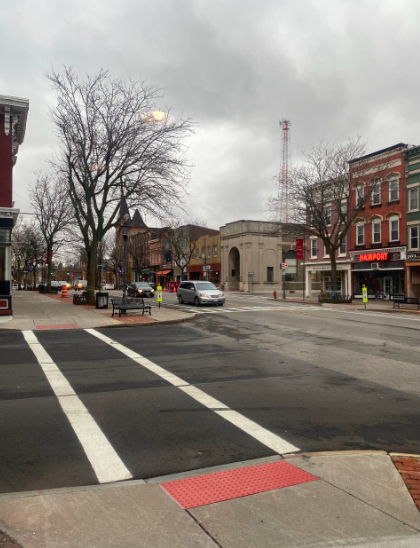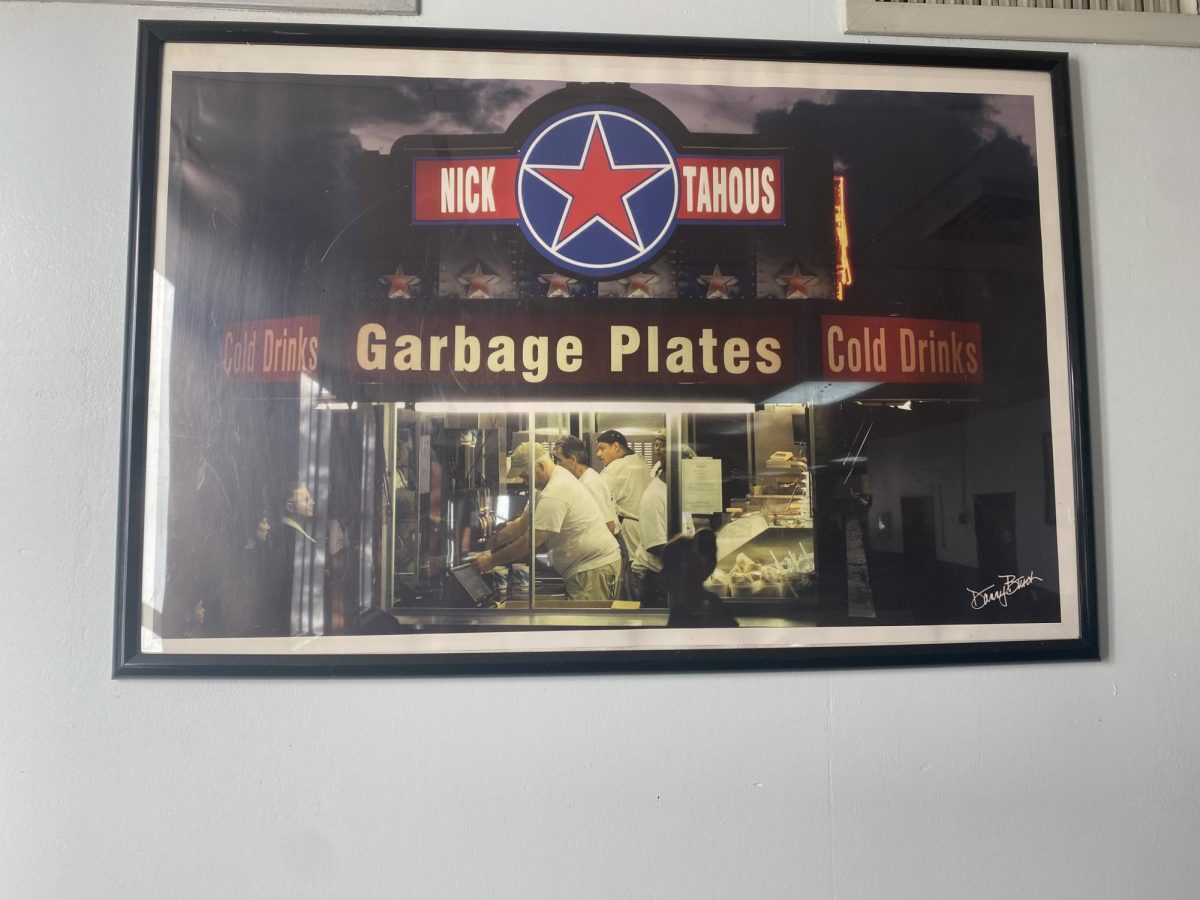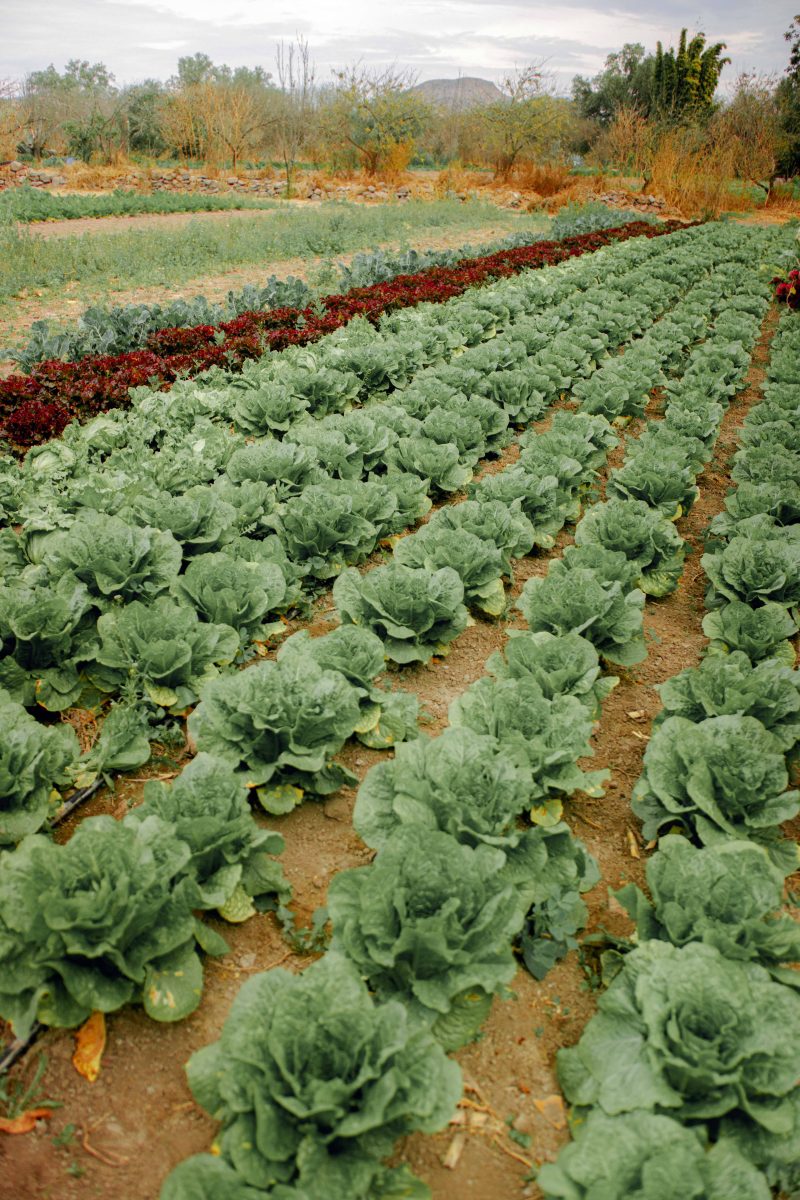By Eliza Gonzalez
Every Sunday people in Brockport can expect to see three things: church goers, people at bars watching football games, and migrant workers on bikes.
People rarely sees migrant workers at places like Java Junction, Lift Bridge Book Shop, Bittersweet, and SUNY Brockport, pillars of the village. Shop proprietors, college personnel, and students often know little about the lives of their neighbors who are responsible for picking and harvesting most of the local produce.

“I don’t know much about the local migrants,” said Molly Rich, who has lived in Brockport her entire life. “I know they’re here, but I don’t know much about them. Sometimes I see them riding their bikes past my house on Main St. and they’ll sometimes smile and wave at me,” Rich said.
Most local migrant workers do not have cars, so bicycles are their only form of transportation. Migrants are often given Sunday’s off, which is when they do errands around town. It is not uncommon to see fleets of migrant workers on bicycles at places like Walmart, Lorenzo’s Mexican Products Inc., or Walgreens on their only day off.
For many community members, their knowledge about migrant workers is limited.
“I do know of the migrant workers in Brockport, but I really don’t know much about them,” said Patrick Farrell, a local resident who has lived in Brockport for 20 years. “I’m really realizing that right now. Like, I know they’re here, but I don’t know much about them” Farrell said.
Some residents do not even know there are migrants in the Brockport area.
“I didn’t even know there are migrant workers in the area,” Lena Paolicelli, a first-year student at SUNY Brockport, who is originally from Long Island said. “I would assume there are some migrant workers at home on Long Island, but I don’t know if it is a popular place since Long Island is an expensive place to live,” Paolicelli said.
Migrant workers are responsible for producing the food that residents eat, yet they often go unnoticed. Their work is grueling, but many local people have little idea of what exactly their neighbors do in the fields.
“I know that the migrant workers in this area are the reason I can buy produce, but I’m not 100% sure what they do at their jobs,” said Rich. “I would assume they harvest vegetables, but I’m sure they do all kinds of jobs on the farms,” said Rich.
If it were not for the almost 11,000 farm workers in Western N.Y., food production would go down, the U.S. economy could crash, and systems of agriculture could collapse. All of these scenarios would affect the local residents who do not know what life is like for the very people, their neighbors, who are responsible for procuring their food.
“I think they help harvest crops during the season when crops are growing,” said Farrell. “I don’t know what they do during the winter or where they work or what farms they work for in the area. I’ve heard that life is pretty terrible for the farmworkers. I don’t really know much about it. I’m not aware of any specific information because I do think this is under covered when it comes to news and stuff,” said Farrell.
New York State farm workers must work over 60 hours before earning overtime pay. The average farm worker in N.Y.S. makes minimum wage doing work that requires maximum stamina and resilience. Some, particularly women, experience abuse while working. Blistered hands, cuts from tools, calloused feet, extreme weather, and pesticide poisoning plague local migrant workers.
“I think it’s so important to learn and know about the lives and what they [migrant workers] do. They play a huge role in our lives, and we are so ignorant to what goes on in theirs,” said Rich.
Next Sunday, when you are at church, or shopping, or at the bar, make note of the migrant workers who are responsible for the food on your plate.




















